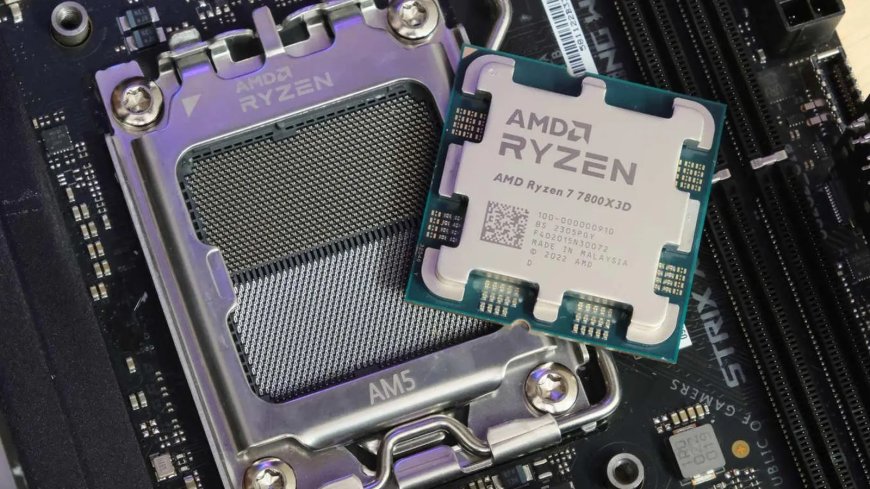Ryzen 7 7800X3D vs Core i7-13700K Showdown
In this classic AMD vs. Intel gaming battle, we compare the Ryzen 7 7800X3D with the Core i7-13700K. With only a $40 price difference, these processors offer a closely matched gaming experience in terms of cost.

Test Setup and Methodology
Hardware Configuration
For benchmarking, the Ryzen 7 7800X3D was paired with the Gigabyte X670E Aorus Master motherboard and DDR5-6000 CL30 memory. The Core i7-13700K was tested on the MSI MPG Z790 Carbon Wi-Fi with DDR5-7200 memory. The Asus ROG Strix RTX 4090 OC graphics card was used for all tests, ensuring high-end GPU performance across the board.
Also check AMD announces $499 Radeon RX 7800 XT and $449 Radeon RX 7700 XT
Resolution and Gaming Benchmarking
Games were tested at 1080p, 1440p, and 4K resolutions to cover a wide range of gaming scenarios and to evaluate the CPUs' performance under different graphical loads.
Gaming Benchmarks and Performance
Hogwarts Legacy: Comparative Analysis
In "Hogwarts Legacy," the Ryzen 7 7800X3D outperformed the Core i7-13700K by 8% at 1080p and maintained similar margins at 1440p. At 4K resolution, however, the performance gap closed, and both CPUs delivered comparable results.
Spider-Man Remastered: Performance with and without Ray Tracing
With RT effects disabled, the 7800X3D showed a significant lead over the 13700K at lower resolutions. With ray tracing enabled, the margin narrowed but still favored the 7800X3D, even at 4K.
Fortnite: GPU-Limited Results
In "Fortnite," using the Epic quality preset, both CPUs were GPU-limited, resulting in similar performance across the board. This trend continued with ray tracing enabled, highlighting the GPU's role in determining game performance in certain scenarios.
The Last of Us Part I: Close Matchup
The Last of Us Part I showed the Ryzen 7 7800X3D having a slight edge in average performance, with more notable improvements in 1% lows. At higher resolutions, GPU limitations resulted in very similar performance between the two CPUs.
Star Wars Jedi: Survivor: CPU-Limited Margins
In "Star Wars Jedi: Survivor," the 7800X3D's advantage was more pronounced at 1080p, thanks to AMD's 3D V-Cache technology. However, this lead diminished at higher resolutions, with negligible differences at 4K.
Halo Infinite: Minor Differences in High-End CPUs
"Halo Infinite" didn't pose a significant challenge for either CPU, with the 7800X3D showing a minor advantage at 1080p and slightly better 1% lows at 1440p. At 4K, the results were nearly identical, underscoring the limited impact of CPU choice in certain gaming titles.
Conclusion: Evaluating the Ryzen 7 7800X3D and Core i7-13700K
Performance Summary
Across various gaming titles and resolutions, the Ryzen 7 7800X3D generally showed better performance, especially in CPU-intensive scenarios at lower resolutions. However, at higher resolutions like 4K, where GPU limitations come into play, the differences between the two CPUs become less significant.
Price-to-Performance Considerations
Given the close pricing, the decision between these two CPUs largely depends on specific gaming preferences and scenarios. The Ryzen 7 7800X3D offers a slight edge in certain games, particularly at lower resolutions, but both CPUs provide a competitive gaming experience.
Overall Recommendation
Gamers prioritizing high frame rates at lower resolutions might find the Ryzen 7 7800X3D to be a more suitable choice, while those focused on 4K gaming or seeking the best value may consider the Core i7-13700K. Both CPUs stand as strong contenders in the high-end gaming CPU market.


































